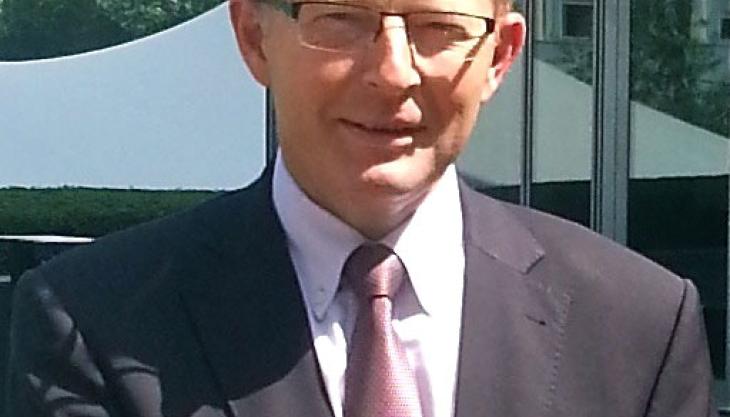CECE sees definite signs of recovery

European construction equipment sector picking up, says Committee for European Construction Equipment
SPEAKING at last week’s Intermat trade show in Paris, Eric Lepine, president of the Committee for European Construction Equipment (CECE), said that while a mixed market environment still existed, there were definite signs of recovery in the industry. ‘There are still uncertainties in different regions of the world and particularly in Europe, but the good news is that the figures are telling us that Europe is picking up,’ he said.
In 2014, the European construction equipment industry was already back to significant growth, albeit coming from low levels, and for 2015 CECE is forecasting that last year’s levels will be maintained with further growth expected to come from hard-hit markets such as Spain, Portugal and Italy, while more mature markets such as the UK, Germany and the Scandinavian countries, which experienced robust growth in 2014, are likely to remain stable.
However, the outlook for France – one of the biggest construction markets in Europe – is looking somewhat gloomy for 2015, according to CECE. It says investments there have almost come to a standstill, with major customer groups, such as rental companies, showing no promising signs of buying activity.
Looking slightly further ahead, 2016 should see the continued slow recovery of the construction equipment industry in Europe, predicts Mr Lepine (pictured). ‘The sector is still showing a huge disparity between several European countries, but CECE believes that the gap is not getting any bigger,’ he said.
On a global level, one bright spot for the industry is North America. Europe is an important supplier to the US, and several companies should benefit from positive market developments there.
Emphasizing that construction equipment continues to be an important sector for the European economy, Mr Lepine warned that in order to maintain this situation and to contribute to the building of a competitive and modern Europe, the industry needs legislation that works. He referred, in particular, to the impending Stage V emissions legislation, which is still under revision but will be the strictest exhaust emissions regulation in the world.
‘We need the regulation to be approved by the end of 2015,’ he said, ‘otherwise our industry will not have the time to implement all the necessary changes in the engines and machines to comply with these new very stringent emissions standards.’ Mr Lepine also called for appropriate replacement engine provision to be inserted in the new legislation, and for the legislation’s transition period to be extended by six months.
CECE is also calling for greater global alignment, saying that as an estimated 75% of the world is only at Stage IIIA and below, and that as the global market for highly regulated products is still quite small, Europe cannot afford to deviate too much from requirements in other ambitious nations in this field.









